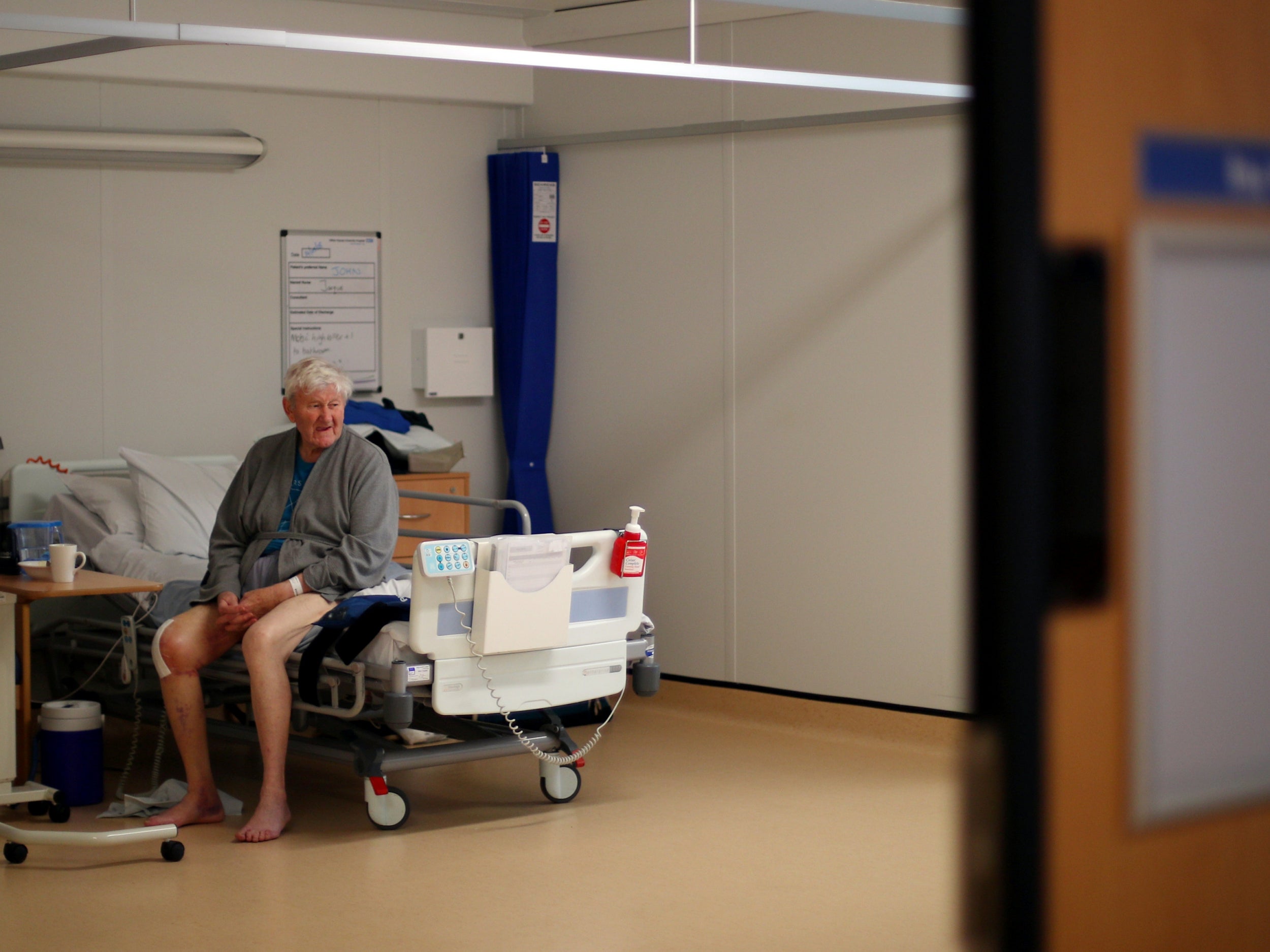The NHS is giving £1bn a year away to private companies – this is Jeremy Hunt's legacy
We should treat this government’s claims to be committed to ‘free at the point of need’ with extreme scepticism


Your support helps us to tell the story
From reproductive rights to climate change to Big Tech, The Independent is on the ground when the story is developing. Whether it's investigating the financials of Elon Musk's pro-Trump PAC or producing our latest documentary, 'The A Word', which shines a light on the American women fighting for reproductive rights, we know how important it is to parse out the facts from the messaging.
At such a critical moment in US history, we need reporters on the ground. Your donation allows us to keep sending journalists to speak to both sides of the story.
The Independent is trusted by Americans across the entire political spectrum. And unlike many other quality news outlets, we choose not to lock Americans out of our reporting and analysis with paywalls. We believe quality journalism should be available to everyone, paid for by those who can afford it.
Your support makes all the difference.According to the BBC, the NHS is now spending a staggering £1bn a year buying in care from private companies.
The broadcaster said its data showed that the bill has been racked up by hospitals, ambulances and mental health trusts.
Private firms are sometimes used when operations might otherwise be cancelled because NHS hospitals are swamped with emergencies. Sometimes the money is spent on hospitals buying places in care homes for elderly patients to free up beds. Sometimes private ambulance crews are called upon to transport less serious cases so NHS crews can concentrate on the really serious cases.
Those who would defend these practices like to talk about “flexibility”, while the Department of Health has urged people to look at the expenditure in the context of the service’s overall budget of £70bn.
You might think that’s a fair point. The £1bn sum, after all, represents only a small proportion of that. In point of fact it’s a tad under 1.5 per cent. If the alternative is someone in desperate need, say, of a hip replacement missing out then isn’t it sensible and pragmatic to call on an alternative provider to pick up the slack?
The problem is that line of thinking is flawed. For a start, such a step is usually taken only at the last minute, in an emergency situation. That leaves trusts in a weak bargaining position. If you want the best price, book early. Do it late and you’ll get your wallet emptied for you, doubly so when it’s at the last minute and you don’t have any other options.
Then there is the fact that NHS doesn’t exactly have pots of cash to spare. It actually doesn’t have any cash to spare. It’s in a semi-permanent crisis, particularly when winter rolls around and people start falling over, contracting complications from nasty bouts of flu, or suffering from other conditions that come with the cold.
Philippa Hentsh of NHS Providers, which represents trusts, pointed out to the BBC that when cash is pumped into the private sector it is lost to the NHS.
It ultimately serves to further diminish the service’s ability to cope in a crisis.
This is where the scandal comes in. At fault here is the lack of capacity in the system.
Through starving the NHS of the resources it needs, and failing to effectively plan for the requirements of an ageing population, the government has left NHS trusts in an invidious position.
At times of high demand, they can either kick their patients by cancelling their ops, or they can kick their budgets by paying top dollar for private outfits to pick up the slack.
The service is, in effect, using the private sector as a crutch, and not just one of those cheap grey NHS ones. I’m thinking of those spring-loaded Canadian super sticks that go for upwards of £500 a pair.
That £1bn might not represent a large sum in the overall context of the NHS’s budget, but it is still a substantial amount of money that is being poured down the toilet.
This is the unlovely legacy of Jeremy Hunt, who has now been dispatched to clean up the godawful mess Boris Johnson made at the foreign office, and perhaps see if he can’t find anything to privatise when he’s done.
Under his stewardship, taxpayer’s money that ought to have been directed towards improving and strengthening the service has been wasted fattening the pockets of private providers.
Creeping privatisation?
It looks to me that it happened, that it is happening, as much by default as by design.
But really, that’s irrelevant. The net effect is the same and it’s just another example of how the National Health Service is in grave danger in the hands of the Conservatives, and in the hands of this government in particular. You should treat its claims to be committed to “free at the point of need” with extreme scepticism.
I fear that those of us that value the service, and we are in the vast majority, are going to have to be prepared for a bare-knuckle fight.
The NHS is being allowed to wither on the vine, perhaps deliberately. We cannot allow that to continue.
Join our commenting forum
Join thought-provoking conversations, follow other Independent readers and see their replies
Comments